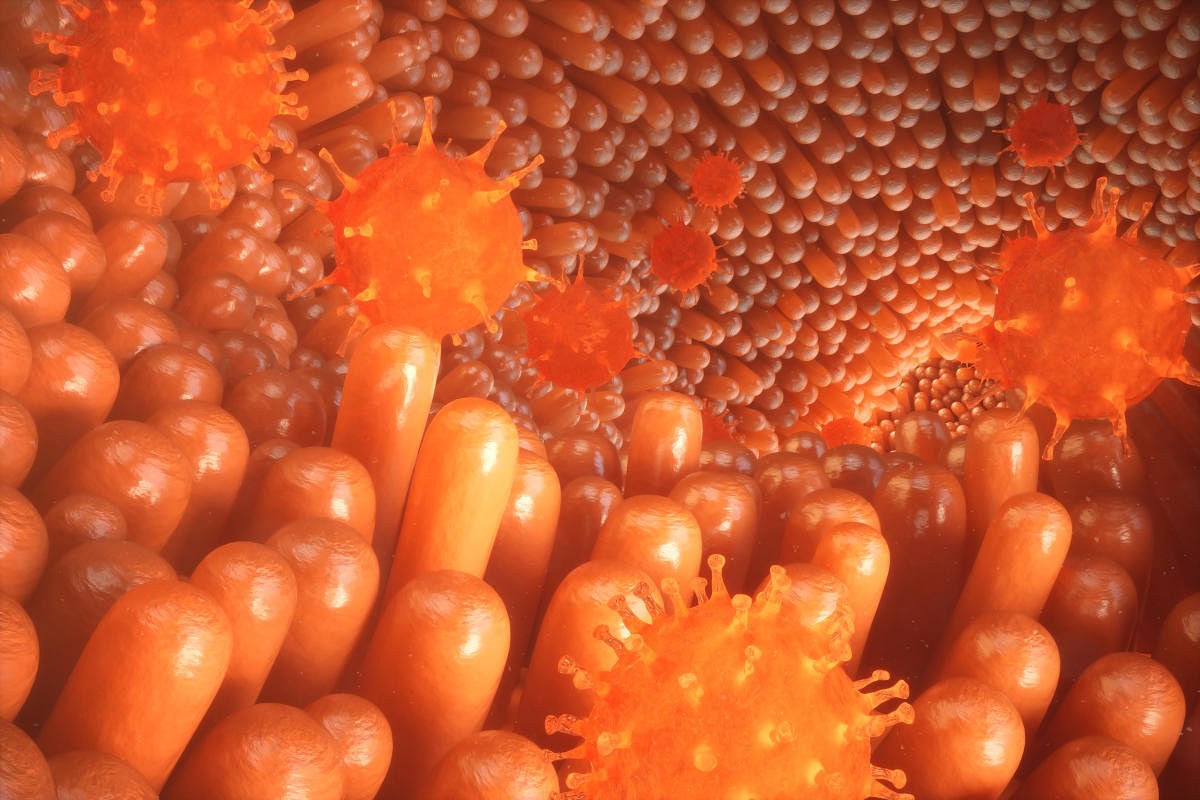
Even as the world is bracing for the impact of the novel coronavirus, a better understanding of how this virus is transmitted is increasingly becoming key to preventing its spread. Any virus has the potential to destroy healthy cells and multiply itself. The virus mainly attacks the lining of the airways in the cells thus affecting the respiratory tract with a spectrum of symptoms, from mild infections as fever and cough to pneumonia and acute respiratory distress syndrome in most severe cases.
However, what is unnerving about the infection is that its effects are not limited to the respiratory system only. Other organs such as the gastrointestinal (GI) tract and liver seem to be targeted by the virus as well. According to a report, the disease can cause haematological changes and even worsen the condition of patients with digestive system related diseases.
Effect on GE system
Angiotensin-converting enzyme II (ACE2) acts as the potential target site transmitting SARS-CoV-2 to humans. ACE2 was found not only highly expressed in the lung alveolar type 2 cells but also found in oesophagus (food pipe), absorptive enterocytes from the ileum (small intestine) and colon large intestine. It is also found in the liver and biliary system.
According to a study from Wuhan, 16 percent of patients presented with gastrointestinal symptoms had reported the following symptoms:
Loss of appetite as the most common symptom. Nausea and vomiting, diarrhoea, abdominal pain are the other GI symptoms.
Faecal samples remained positive for SARS-CoV-2RNA for nearly 28 days from the first symptom whereas respiratory samples were positive up to 17 days from the first symptom.
It means a patient can continue to shed the Virus RNA in stools in spite of getting cured from respiratory ailments. So, the role of faeco-oral route of acquiring the infection cannot be neglected and one needs to follow hygienic practices after using the toilet. Liver dysfunction is seen in patients with severe Covid-19 disease. An abnormality in liver function blood test is generally found in Covid-19 symptomatic patients. One of the components in liver function test called as ALT is elevated in them. ALT elevation was found in 16 to 53% of patients. However, no cases of acute liver failure have been reported so far. The above observations highlight the gastrointestinal and liver involvement in Covid-19 patients, however, the final outcome or recovery depends primarily on the management of lung issues. Development of GI symptoms does not indicate the severity of Covid-19 disease.
Use of immunosuppressants
One of the other concerns in Covid-19 pandemic is related to immunosuppressant medication which a patient may be taking for some other gastrointestinal and liver diseases like IBD (Crohn’s disease, Ulcerative colitis), Autoimmune hepatitis, etc. If somebody is on steroids, the dose needs to be decreased to the minimal dose possible. Patients who are already taking immunosuppressants like Budesonide, Azathioprine, Methotrexate and biological therapies are advised to continue using the same dose as long as the primary disease is under control. However, if the patient is suffering from Covid-19, then all the immunosuppressant medications mentioned above need to be stopped and alternative medications need to be considered.
Endoscopy during Covid-19
It is important to adopt certain measures related to endoscopy in Covid-19 pandemic so that patients are not unnecessarily exposed to risks of acquiring the infection. This also ensures protection for the endoscopist and other healthcare workers so that they do not get the infection from patients.
Screening colonoscopy, endoscopy for dyspepsia and intestinal metaplasia can be postponed for eight weeks or more and after reassessing the pandemic, the patient can be guided for endoscopic procedures.
However, in the case of gastrointestinal bleeding, cholangitis, food impaction, perforation, stenting for gastrointestinal obstruction, these must be treated as emergency endoscopic interventions with full PPE for all healthcare workers.
(The author is director, Institute of Digestive & HPB Sciences, Sakra World Hospital)